Happy independence? July 1st is a day of both celebration and grief for Hong Kongers. It both marks the day on which Hong Kong was finally released from the rule of the British, whose only good policy was to not care too much about this place, and the day when Hong Kong was given into the hands of a power-hungry empire that not at all understands values like individualism and non-interventionism.
So being crunched by two former empires that either cared too little or care too much, it is understandable that July 1st is not an easy day in Hong Kong.
It is also not an easy day to be a Gwei Lo, or any foreigner for that matter.
How to behave correctly? Should you care, and risk being like the Chinese Communist Party, that crushes its people with advice on how to run their lives? Or should you risk being like the British, whose goodbye present was a bored Charles of Wales who is said to have called the Chinese “appalling old waxwords” in his diary.
The issue is also difficult because there is no clear message behind the July 1st protests. June 4 groups, religious groups, human rights groups, artists and of course political parties wait a long the way to highlight their own agenda and mark the day as for their cause.
Is it about democracy, which has been promised to Hong Kong now for years and is delayed another few years? Is it about preserving Hong Kong’s “high degree of autonomy”, or even extending it, whatever that means? Or is it about the opportunity to show general resentment with anything from the mainland?
I decided to check it out myself, feel the vibe and talk to people, at first with a Gwei Lo, then with a local friend. Foreigners are indeed seen rarely along the protests, and are met with curiosity. It is not promptly clear to why someone who would not get voting rights anyway cares about democracy.
But people agree that they are not just marching for democracy, but to raise their voice on broader issues. These issues are seen not just by locals as universal, such as the treatment of prisoners in the PRC, or the freedoms of the Chinese people. And as these issues are universal everyone has an equal duty to raise their voice and discontent, especially with 胡錦濤 Hu Jintao and many mainlanders being in town, presenting the chance to make an actual impression.
The march was incredibly peaceful. Police blockades were largely respected, emergency lanes kept open and private property valued. Given that there were allegedly 400,000 people attending, the police presence was marginal. Unlike European or American police forces, the Hong Kong Police does not use every little conflict to show off their arsenal of armored trucks, water cannons, combat gear and a military fair worth of stun guns and tear gas.
It took about 5h to get from Victoria Park to Admiralty, where the protests concluded for most at the Hong Kong Government building. Only the more “radical” around the “People Power” went on to Sai Kung to protest in front of Queen’s Road West 160, the backdoor of the China Liaison Offices.
The Hong Kong July 1st protests are together with the June 4 vigil the only opportunities inside the People’s Republic to raise your voice on such a large scale, and should be used. If people from outside the authoritarian regime don’t stand up for the oppressed, who else will?
- A girl wearing the old Colonial Flag. Probably more an attempt to offend than a tribute to the old occupant.
- Not so nice. Mainlanders are frequently referred to as locusts, a tactic that is commonly used to degrade a group to non-human status, and therefor make it more acceptable to attack with stronger measures in the future.
- 開路 Hoi lo! Open the streets! Protesters respect the authorities enough.
- On the back it reads: “If you can’t say fuck, you can’t say fuck the government!”
- No left turn, or rather “no west turn” refers to the tendency of the Hong Kong government to have been too closely aligned with the Mainland in the West.
- Less marching, more queing.
- A dubious and unknown organization had flagged Hennesy Road and other large streets in Hong Kong with “congratulation banners” that were torn down by bored protesters.
- No reason for privacy, we are still allowed to say what we want.
- 400,000 people is a lot for a district as small as Wan Chai.
- A reference to the many people that are hung every year in China.
- The fear of tanks is always alive in China. See the video below.
- Offensively beautiful in its inefficient use of expensive space.
- The fireworks as seen from the new grass promenade at Tamar, right next to the new LegCo building. To watch happy fireworks right after a long protest is part of the antagonisms that make up Hong Kong.
- Hong Kongers take pride in their cleaning as it separates them from the mainlanders, or so they believe.
- Curious Gwei Los being taken by surprise.
- Supporters of the more progressive (read: violent) party “People Power” in front of the China Liaison offices in Sai Wan.
- To commemorate the dead and to provide them with an easy journey to the after life, Chinese leave little fictive bank notes. These are for the dead dissidents of China.
- The weather was perfect all day, as a typhoon had cleared up the sky two nights before. It only rained at around midnight, when only few protesters were still out.
PRC prime minister 胡錦濤 Hu Jintao was in town the same weekend to attend a parade (not accessible for the public) and swear in new Chief Executive 梁振英 CY Leung. The highly abstruse ceremony is according to Hong Wrong’s write up this dialogue: “Hello Comrades”, “Hello Leader”… and… ”Comrades, you are hard working”; “We do it for the People”. But why do the women have to scream like that? Is that protocol?
http://www.youtube.com/watch?v=XORuv3RlqJQ
In the days preceding the protests, Hong Kongers were both outraged and fearful of the sight of PLA troops entering the streets of Hong Kong without proper cover.

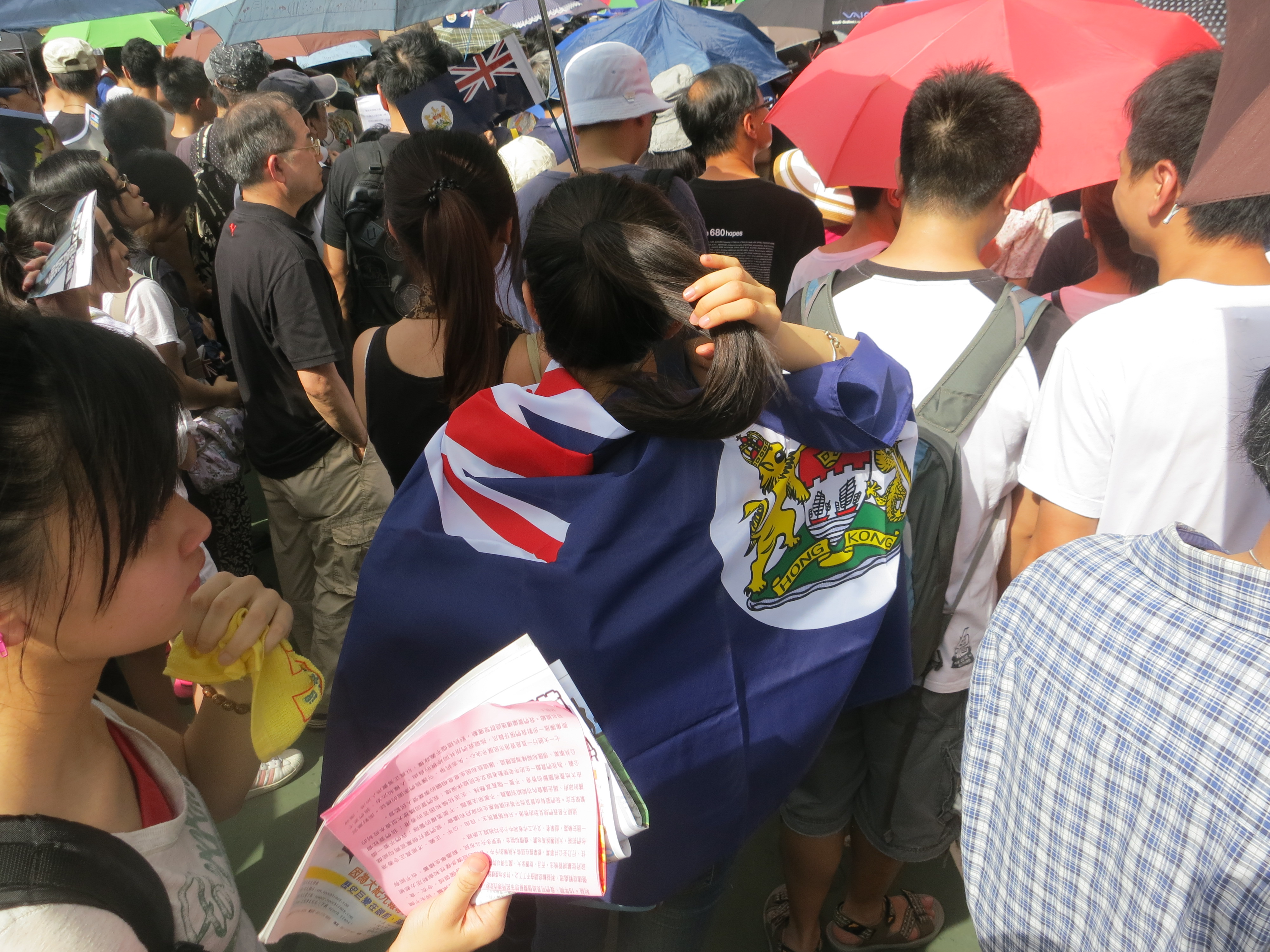
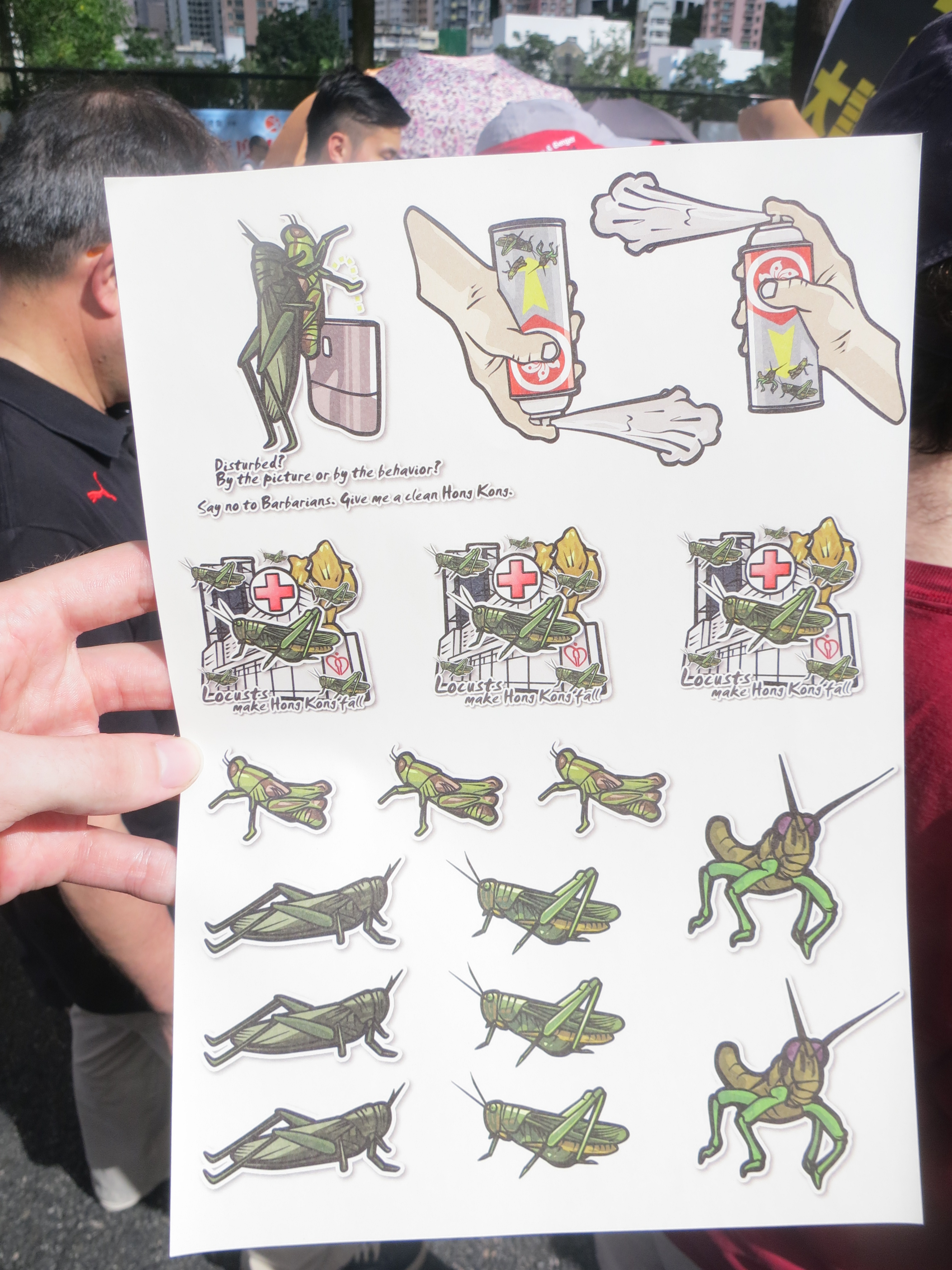
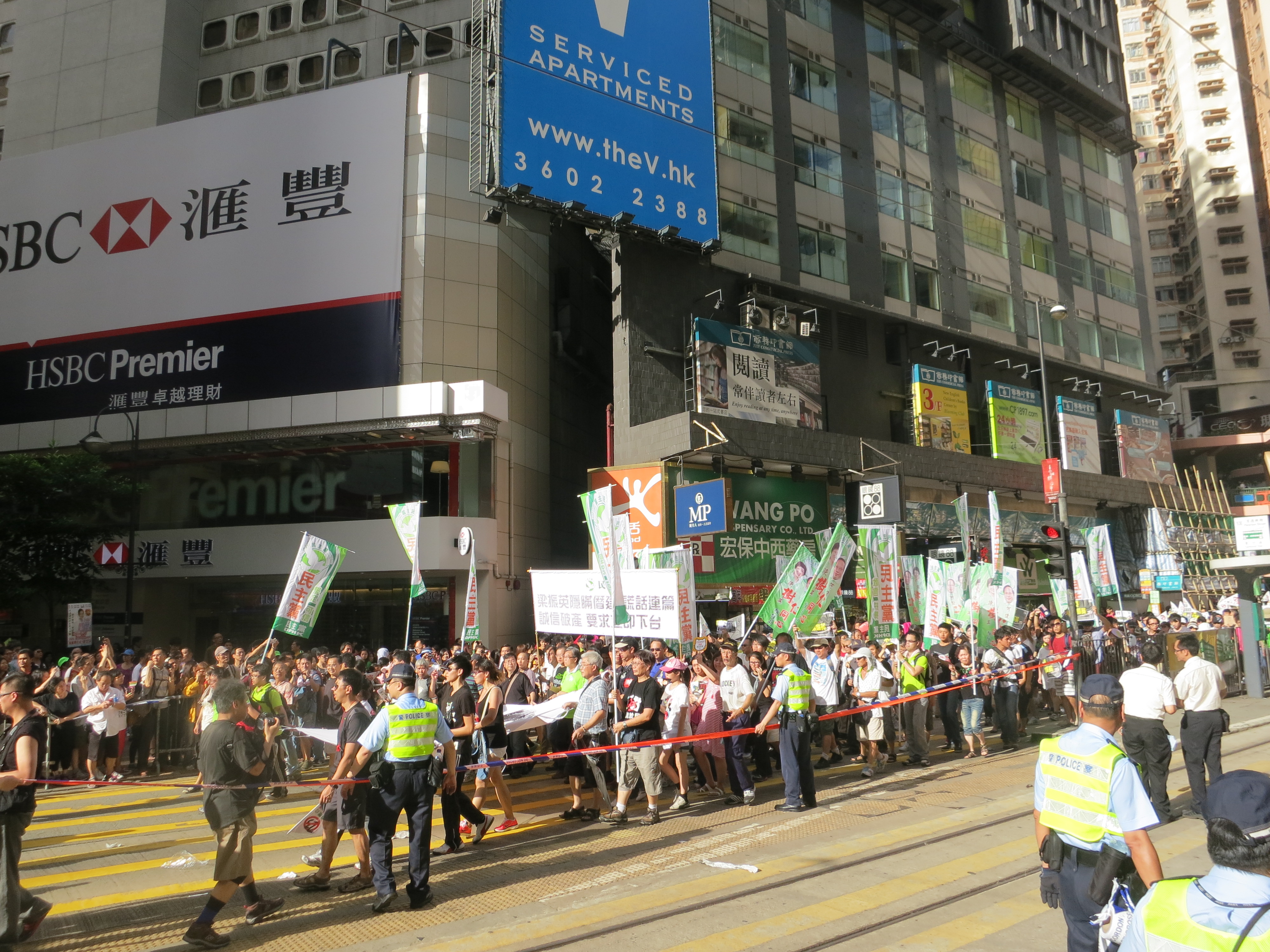
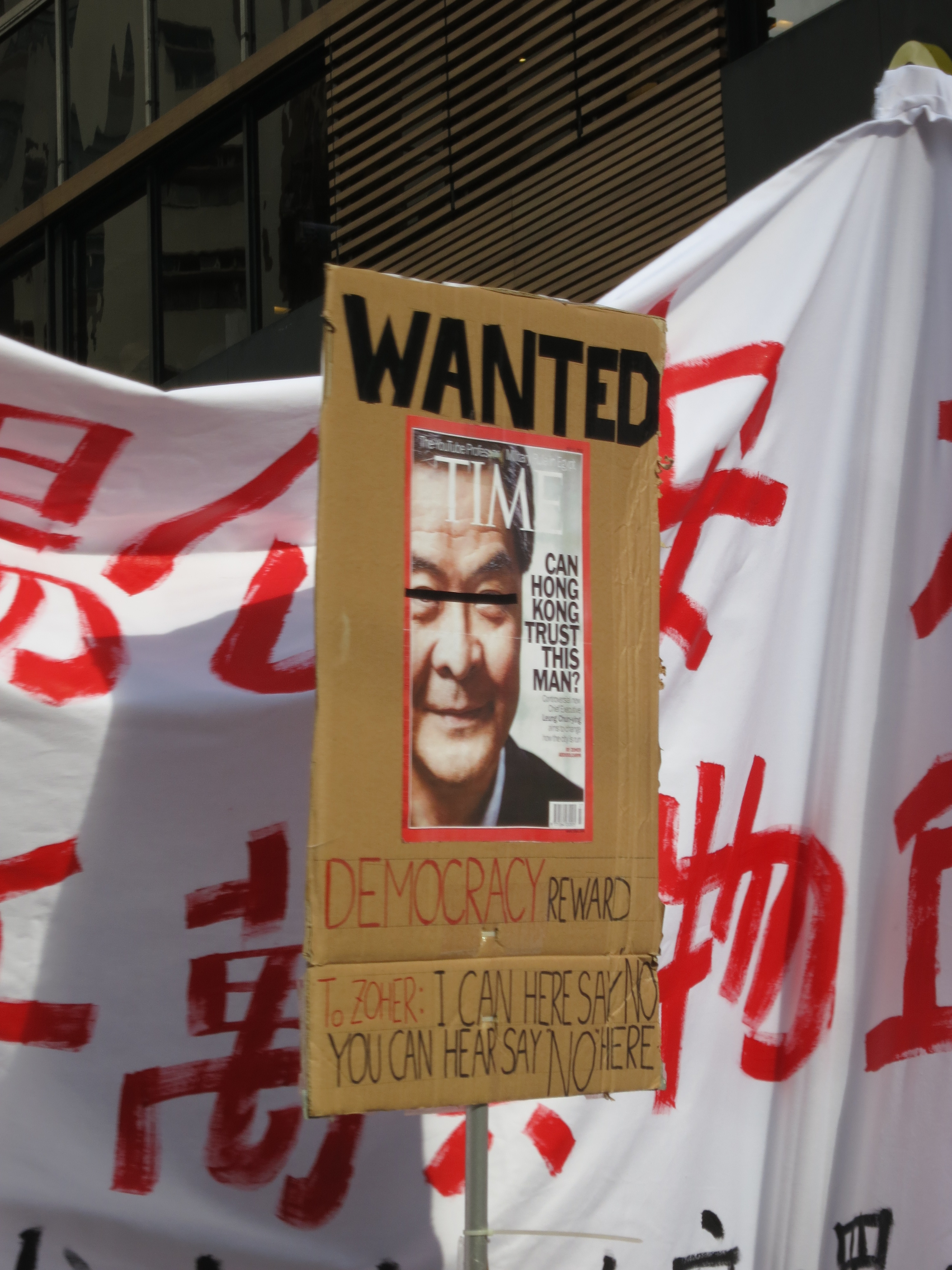
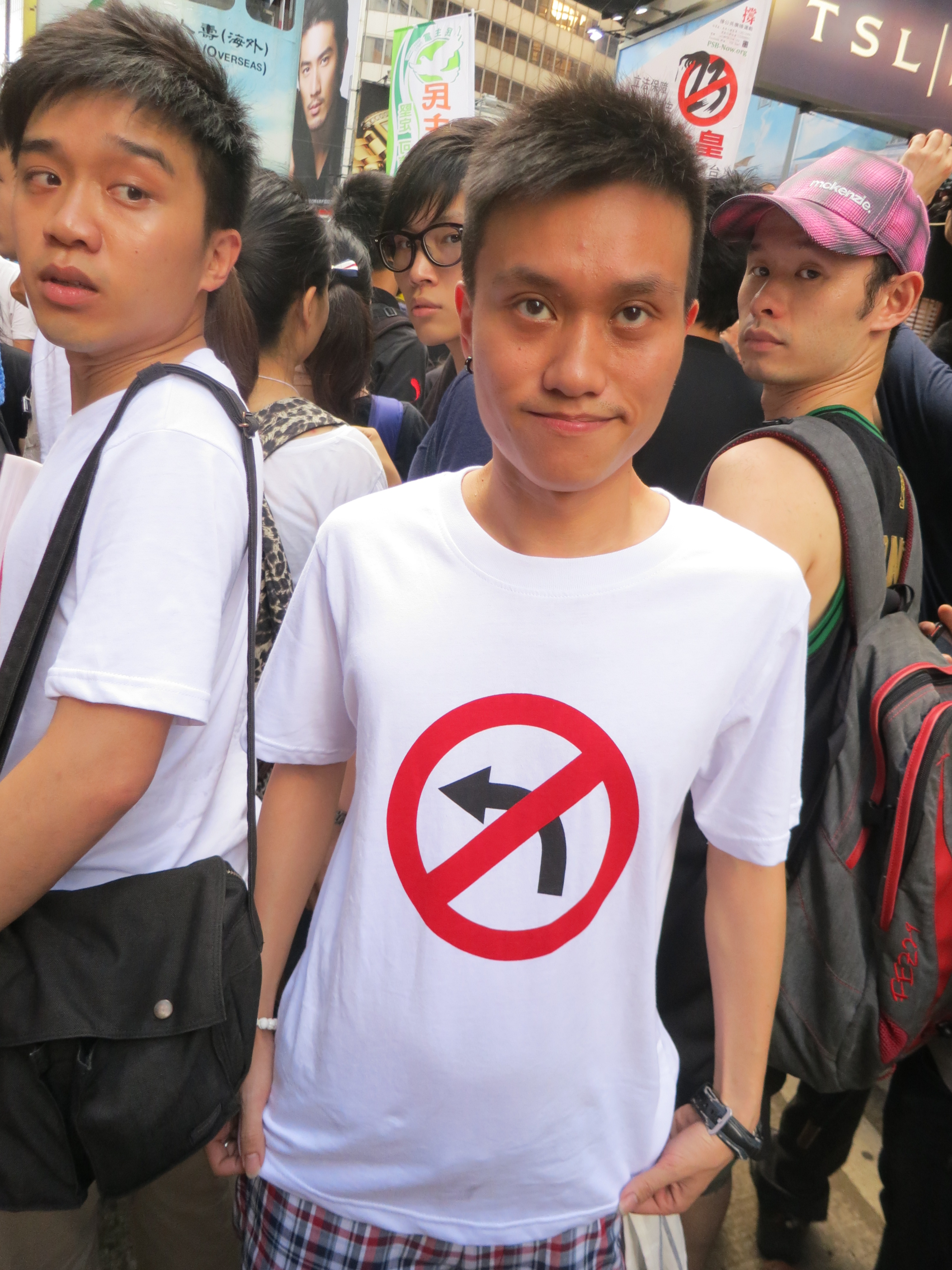
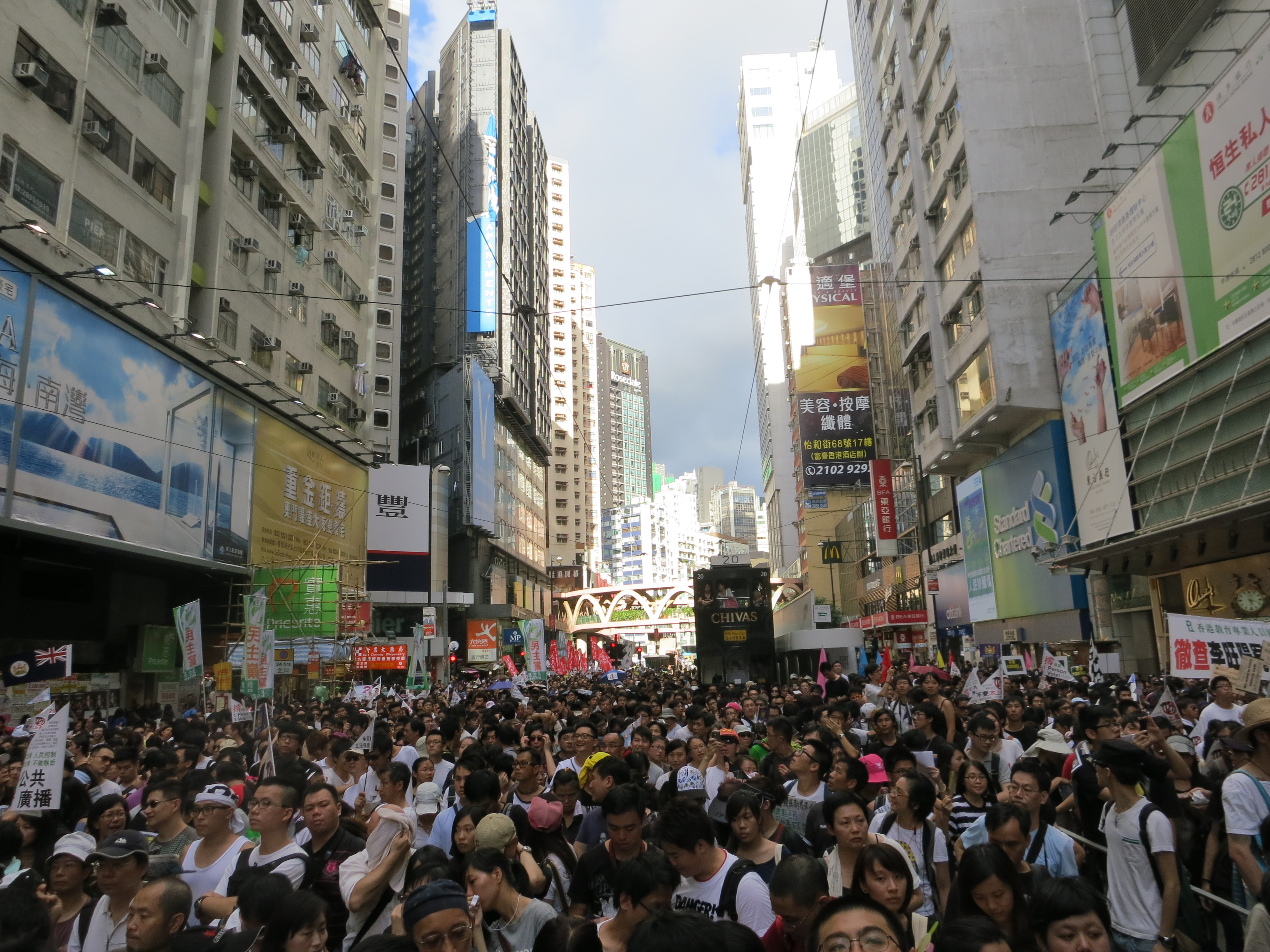
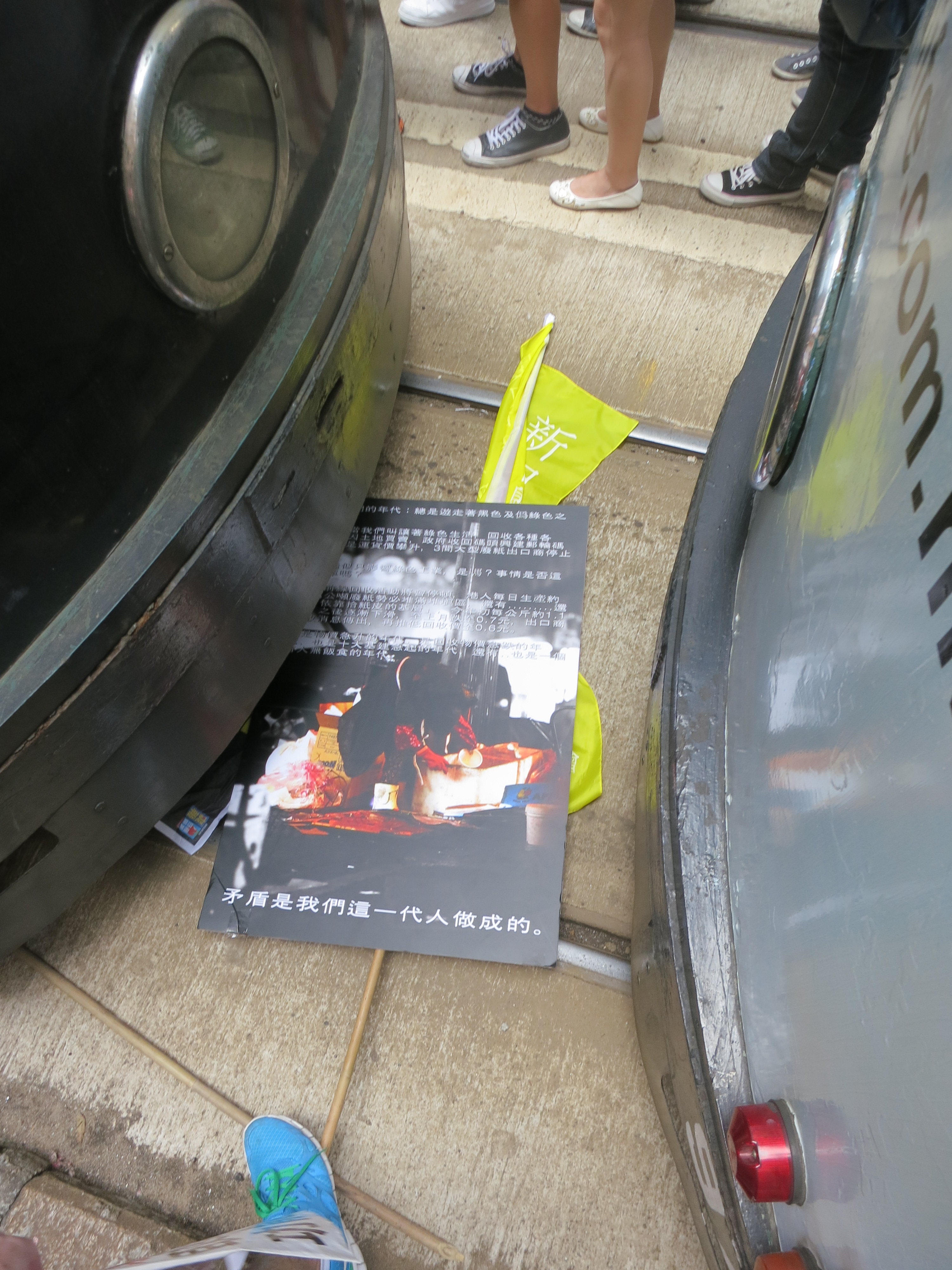
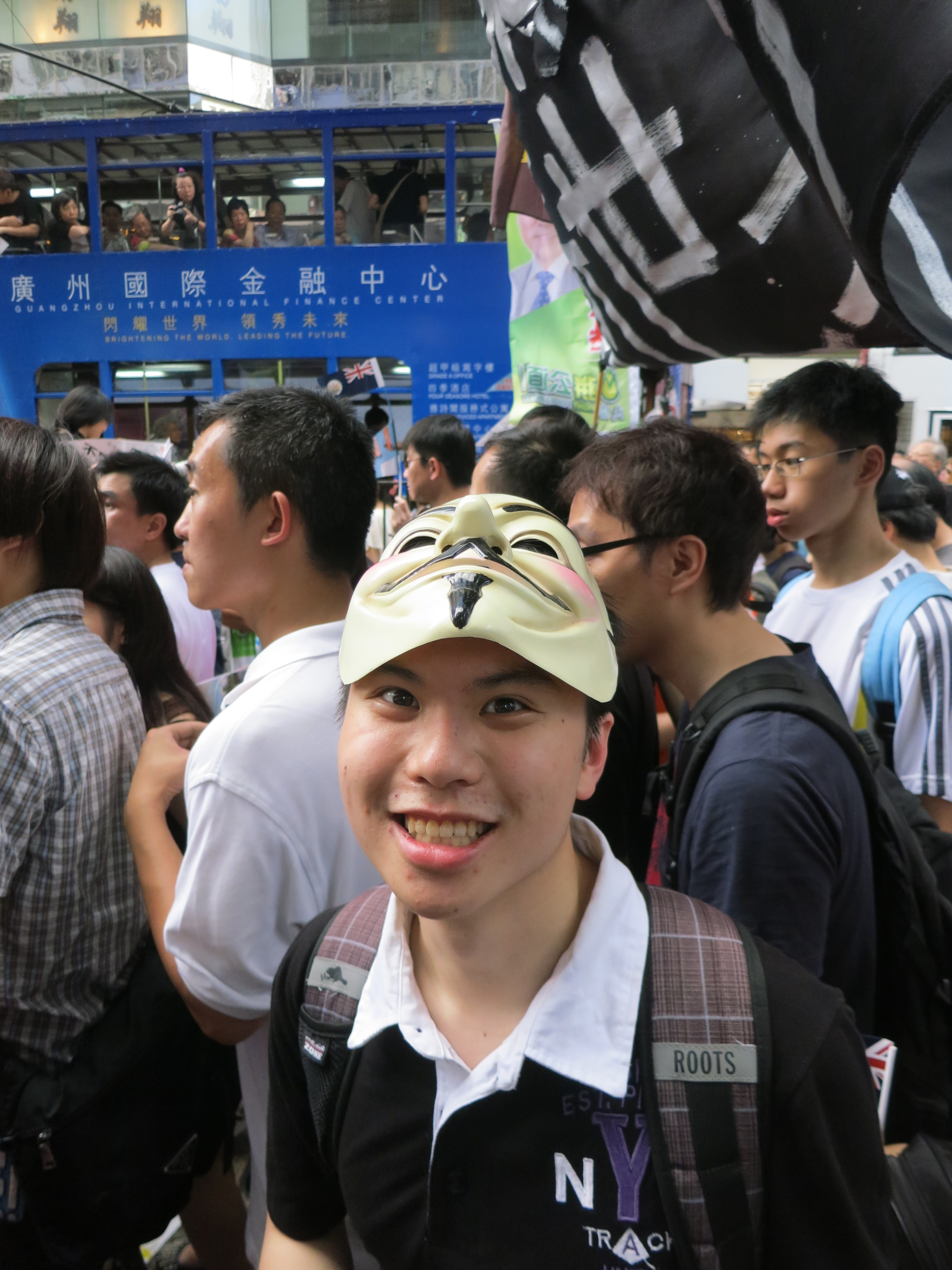
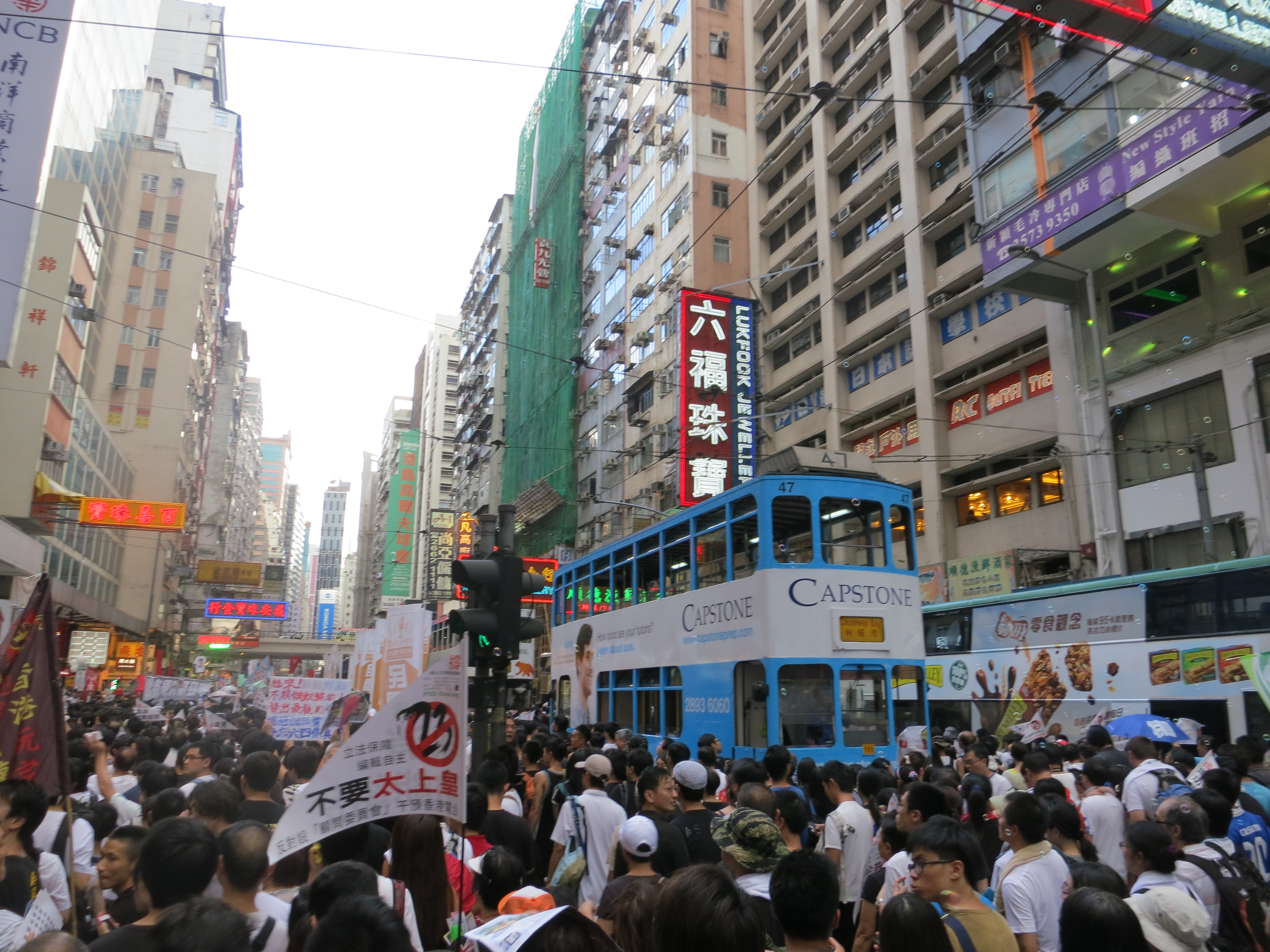
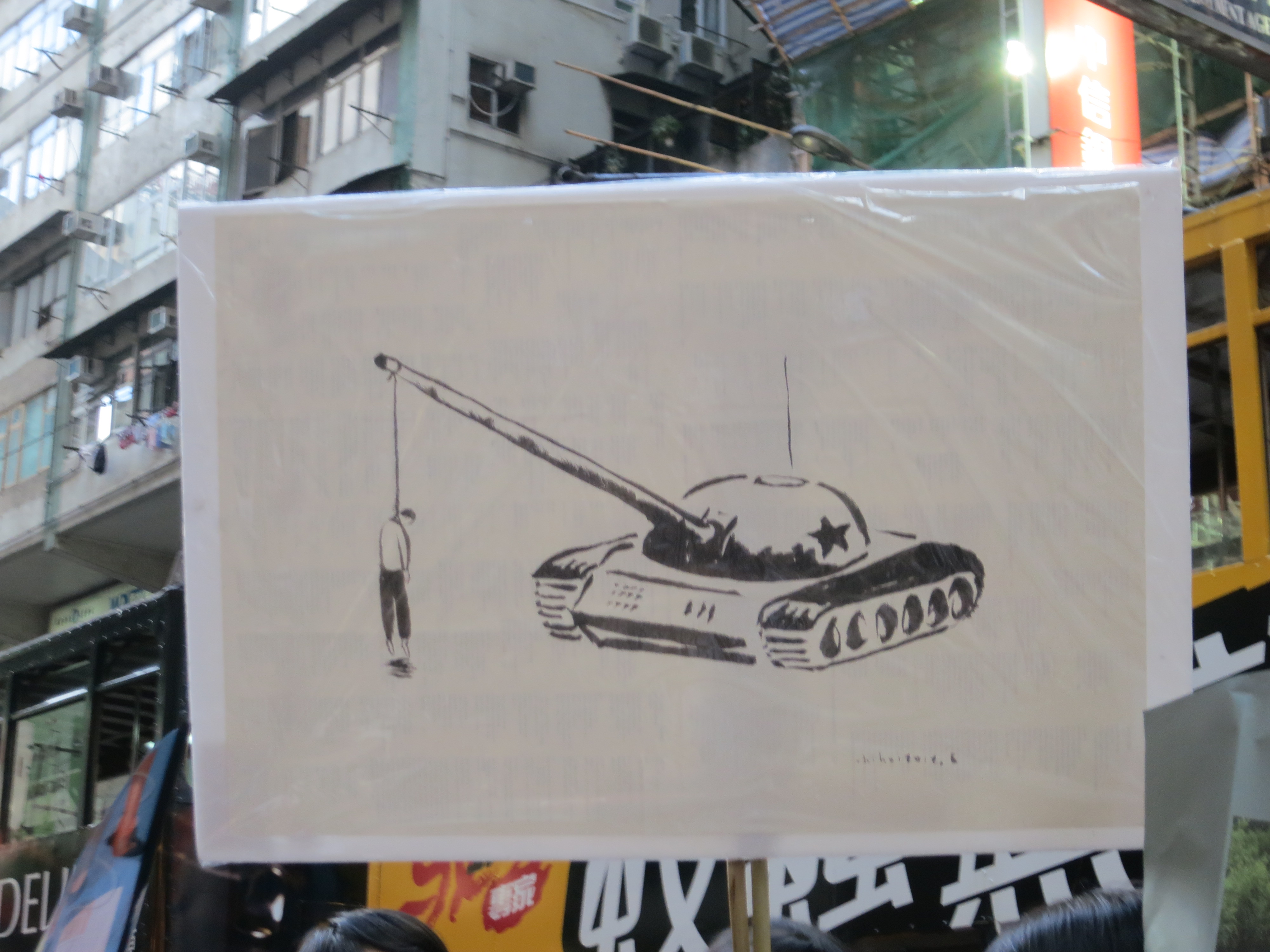
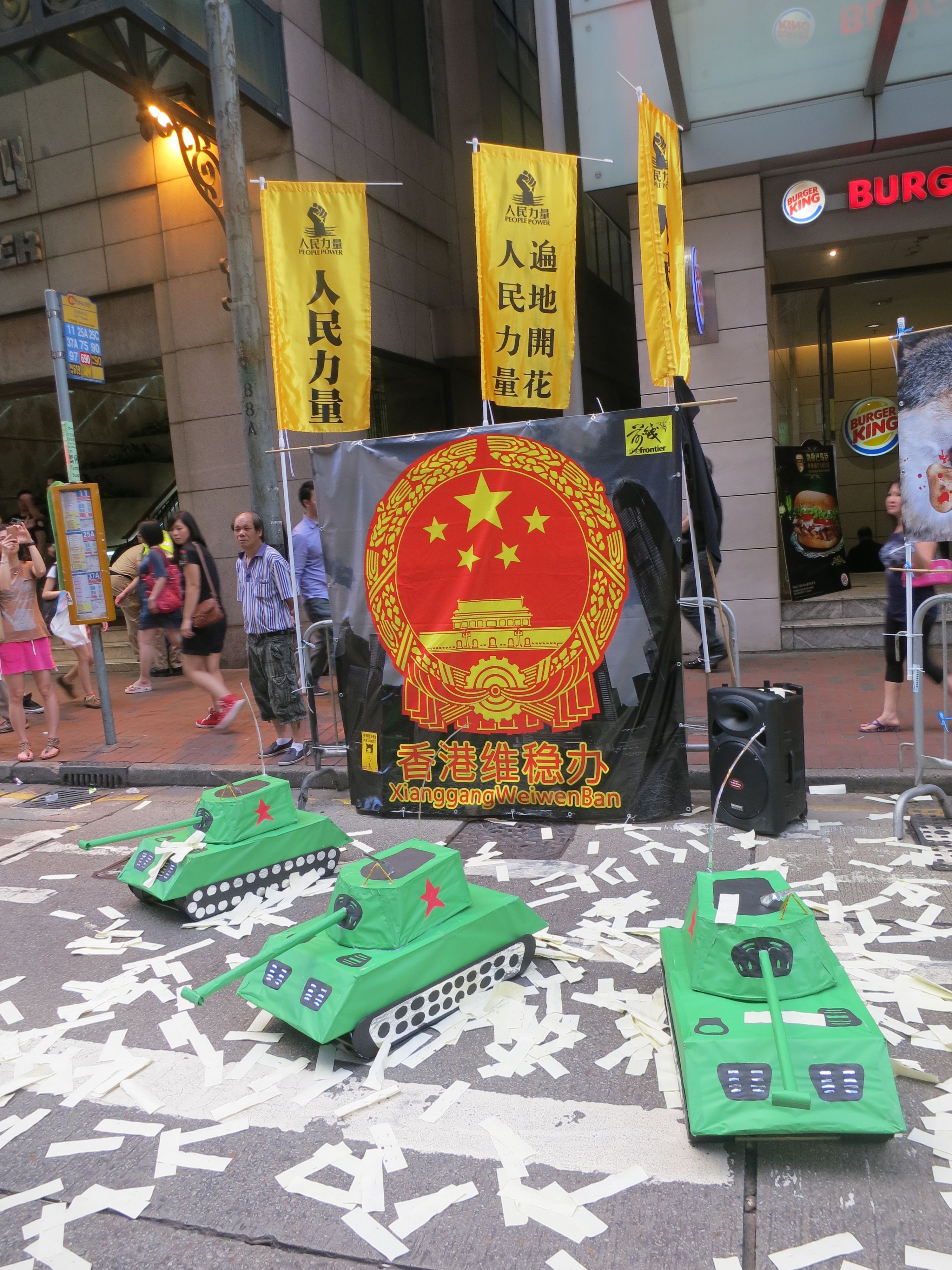
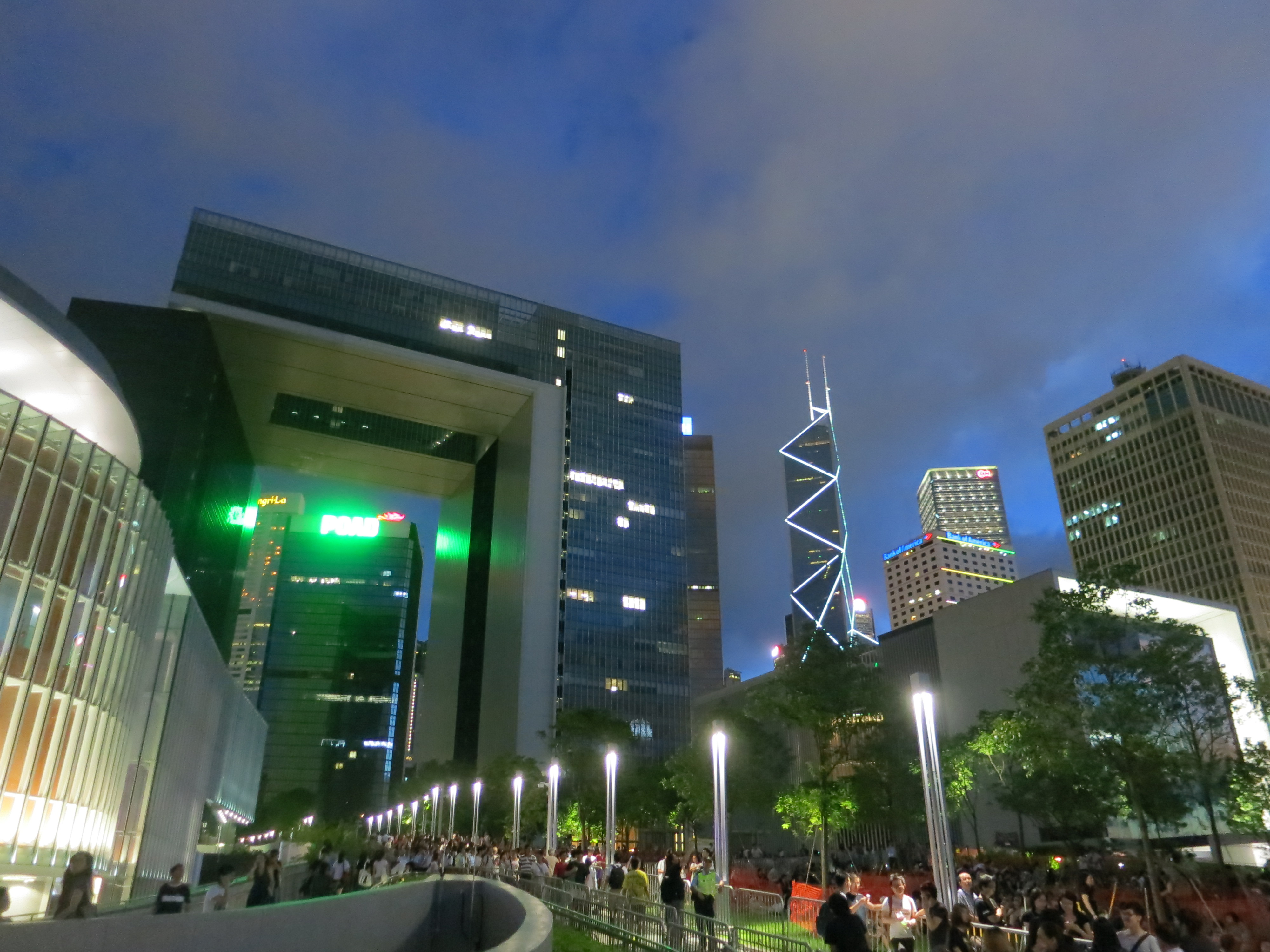
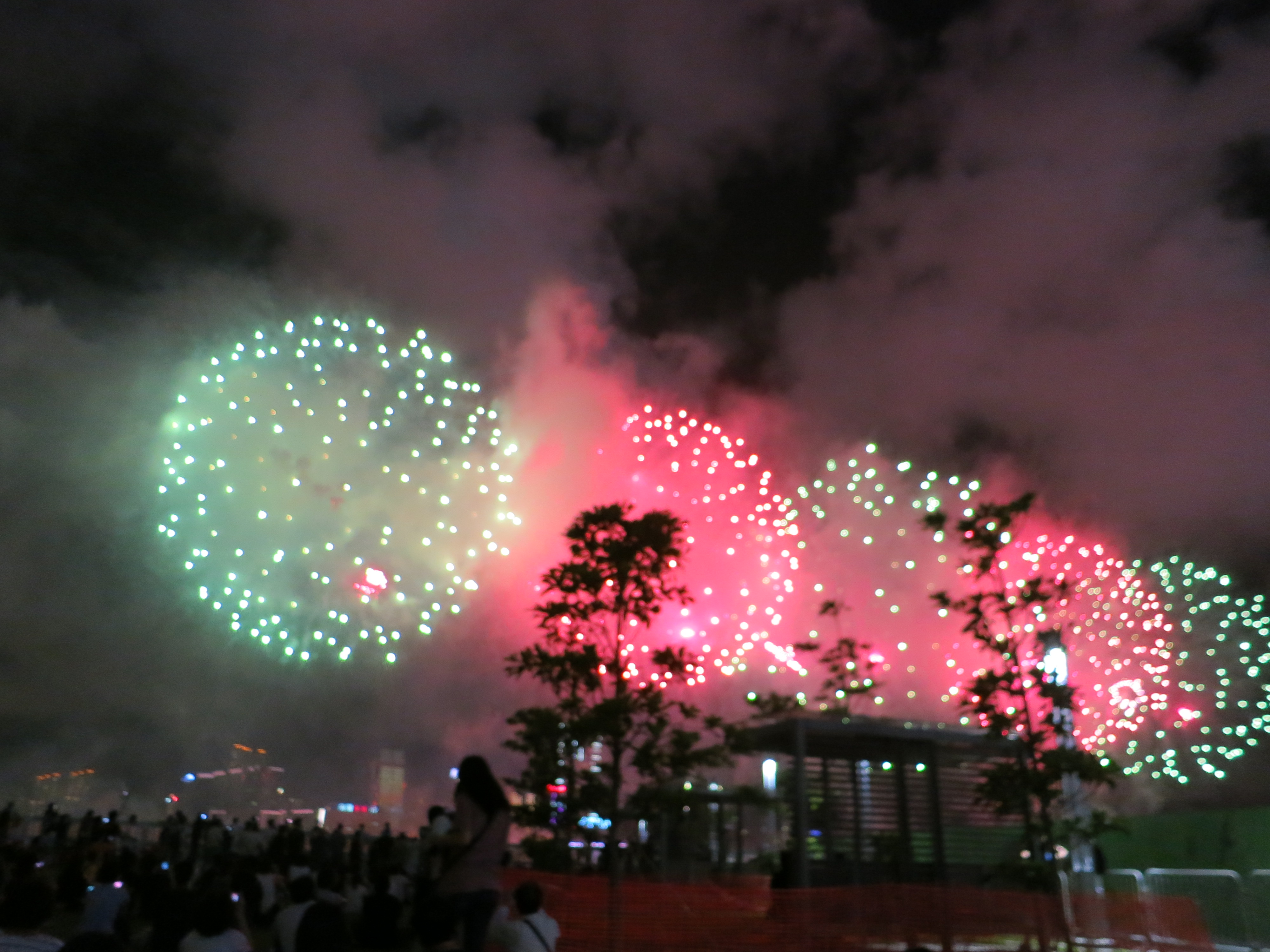
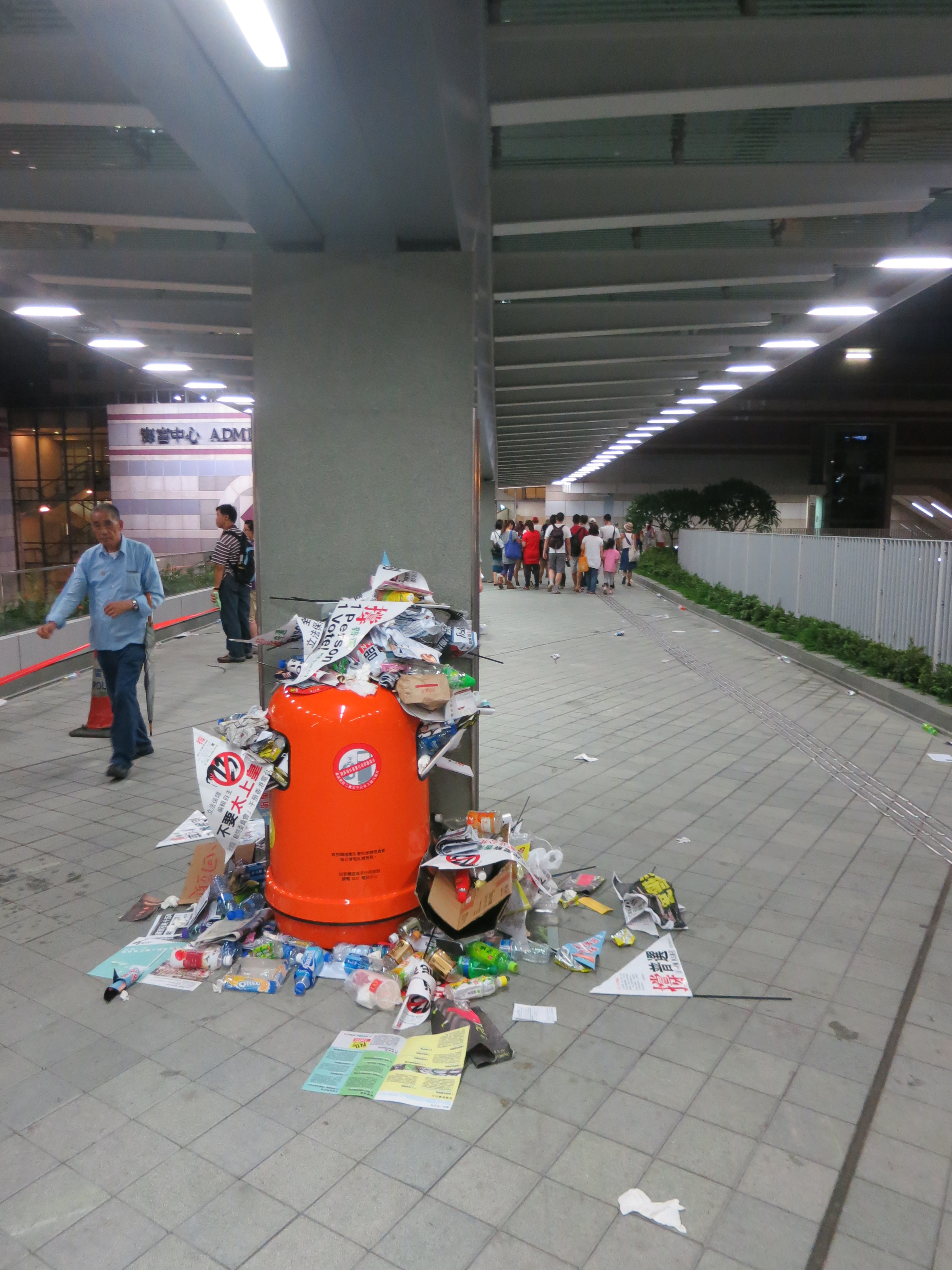
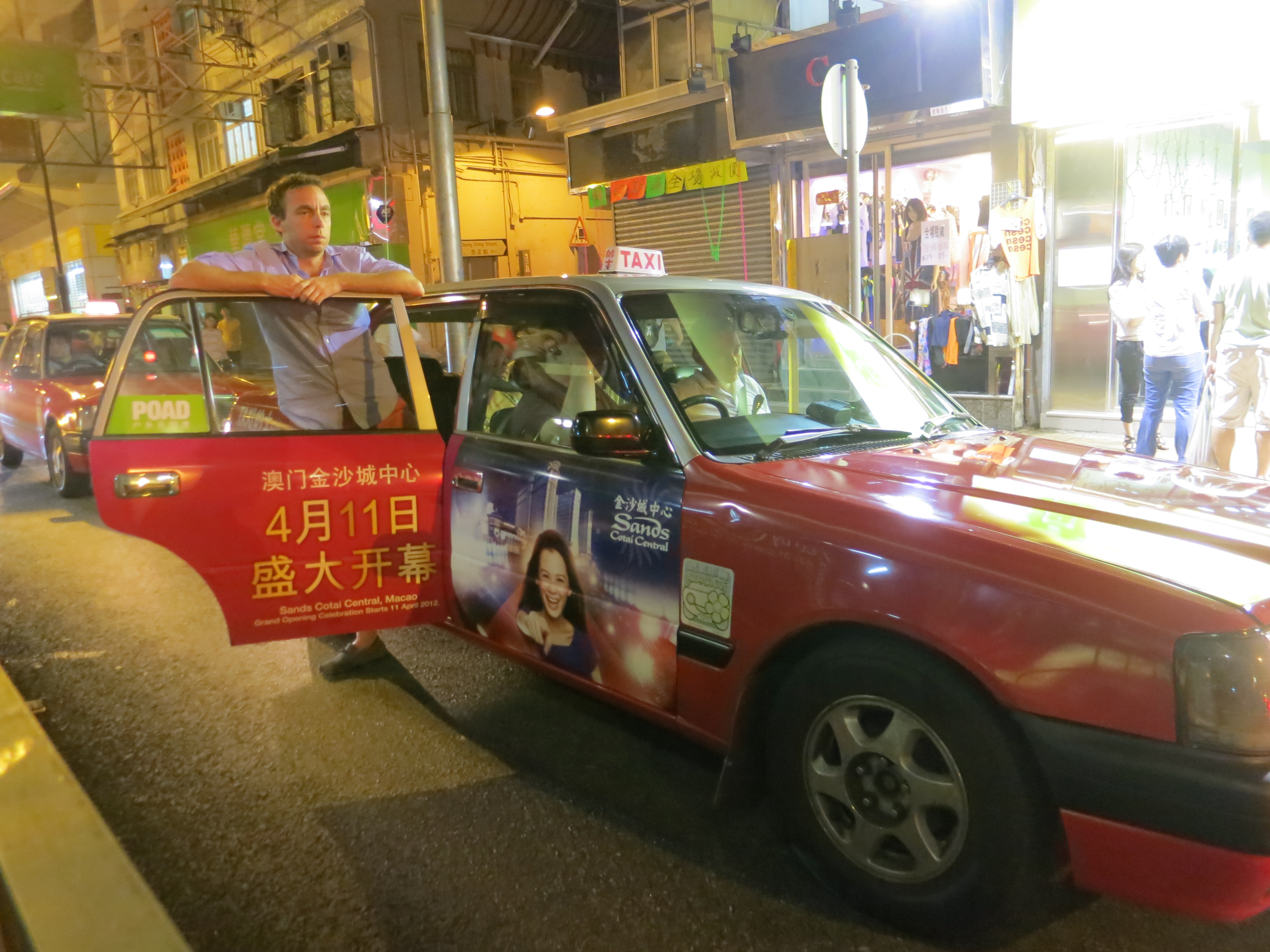
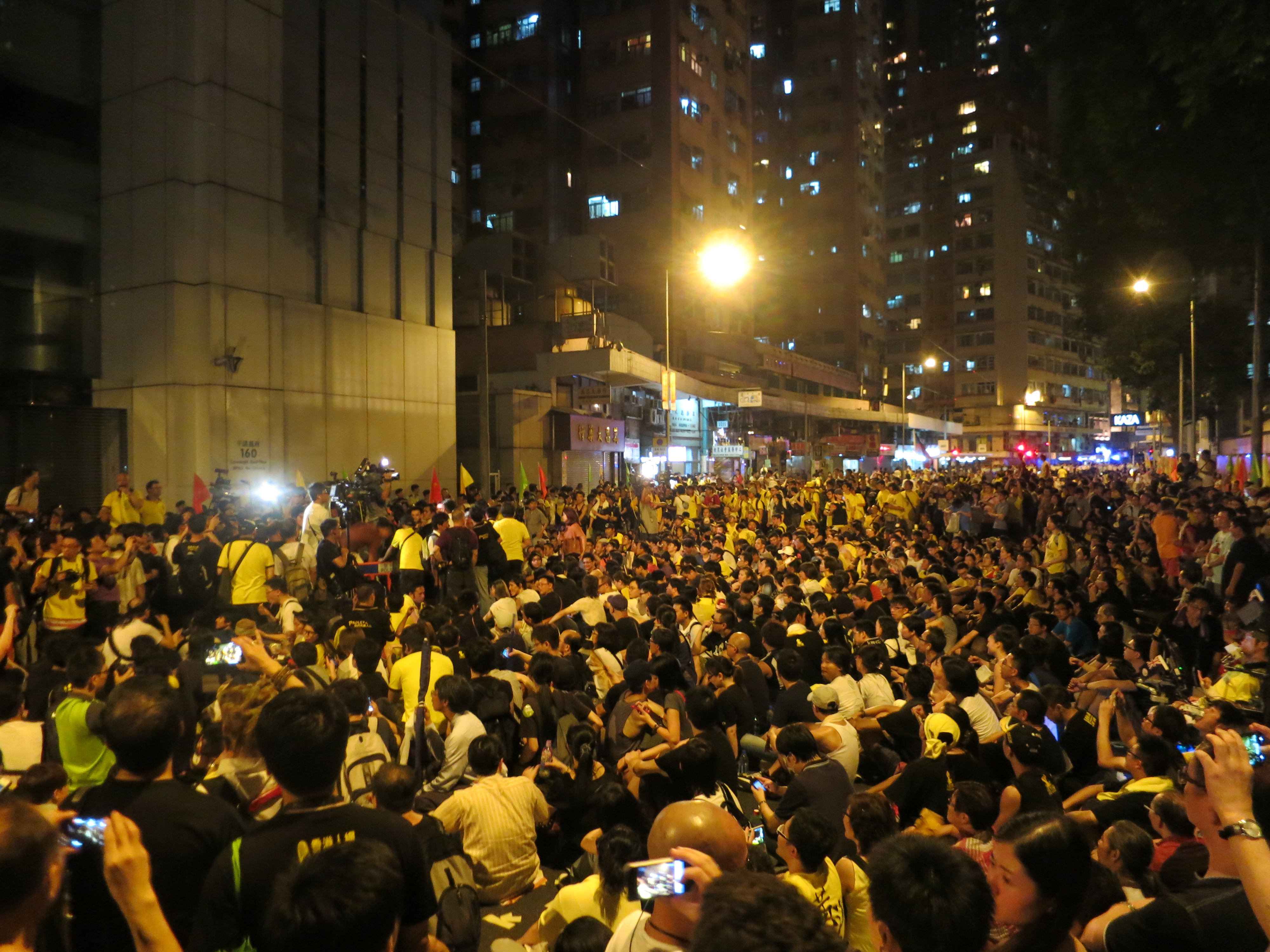
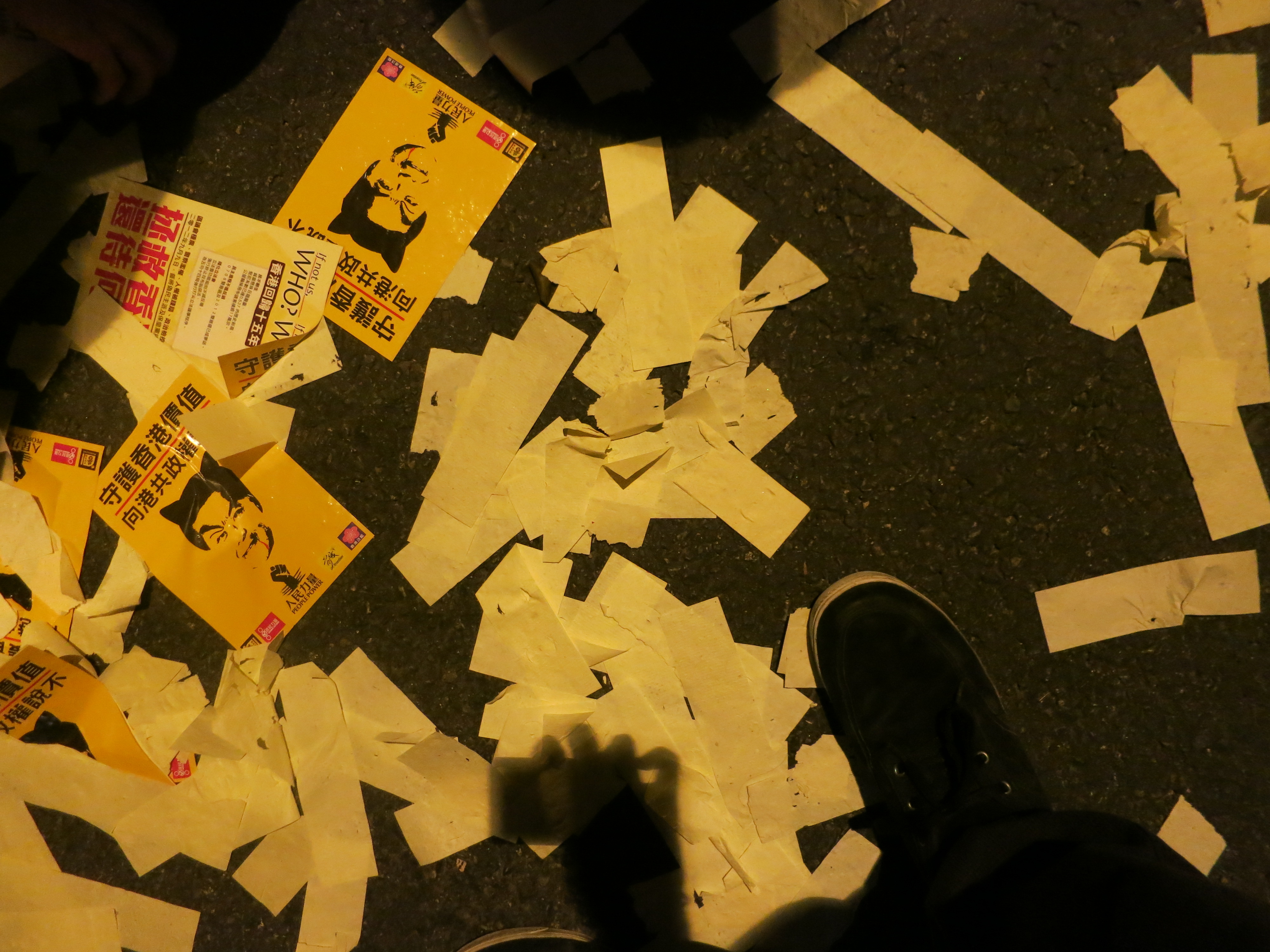
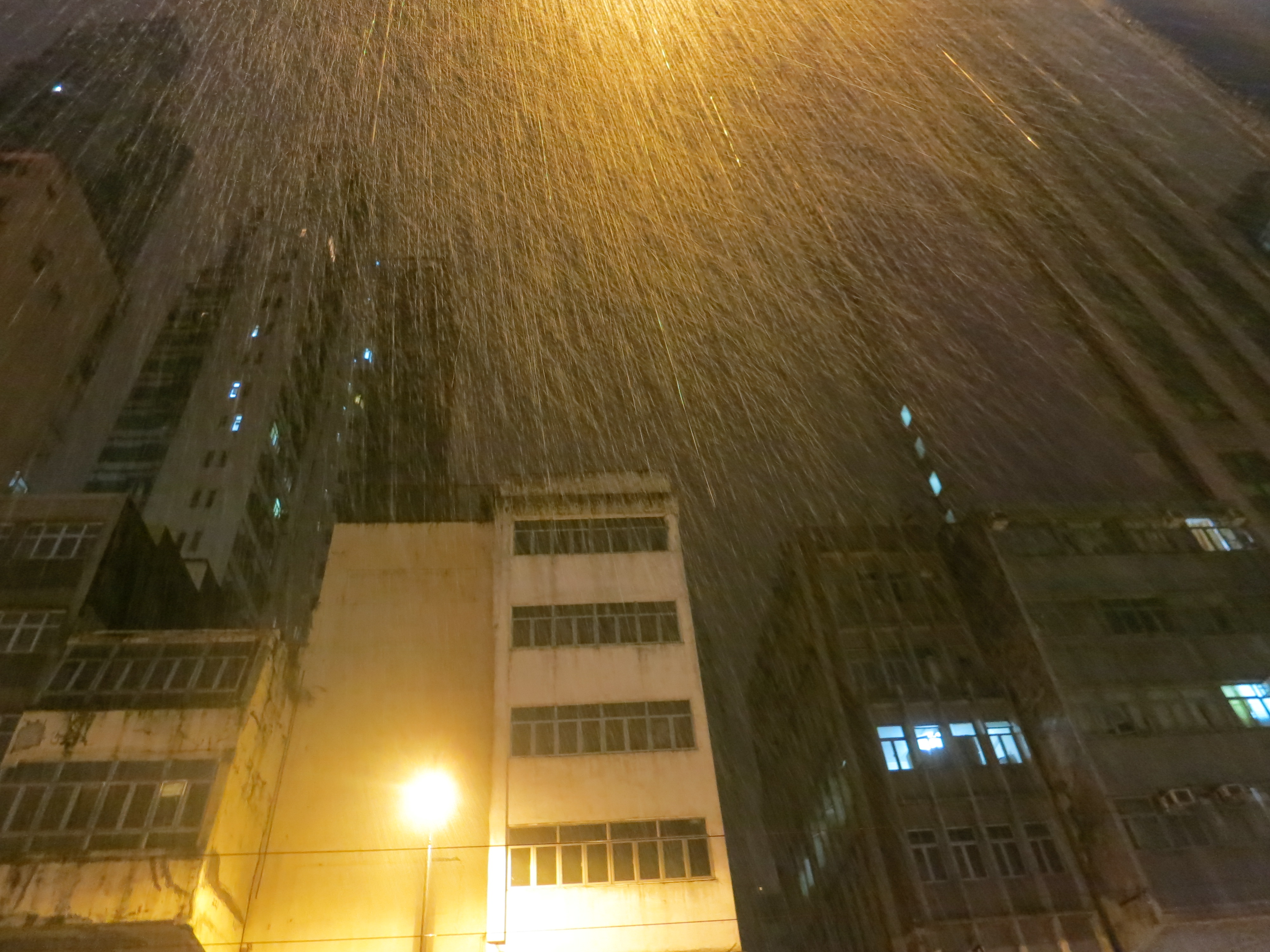
I like that you use ‘a power-hungry empire’.
The majority of the protesters I saw (in the afternoon) were still complaining about their Lehman Brothers minibonds (http://www.thestandard.com.hk/news_detail.asp?pp_cat=30&art_id=123202&sid=36641851&con_type=1)